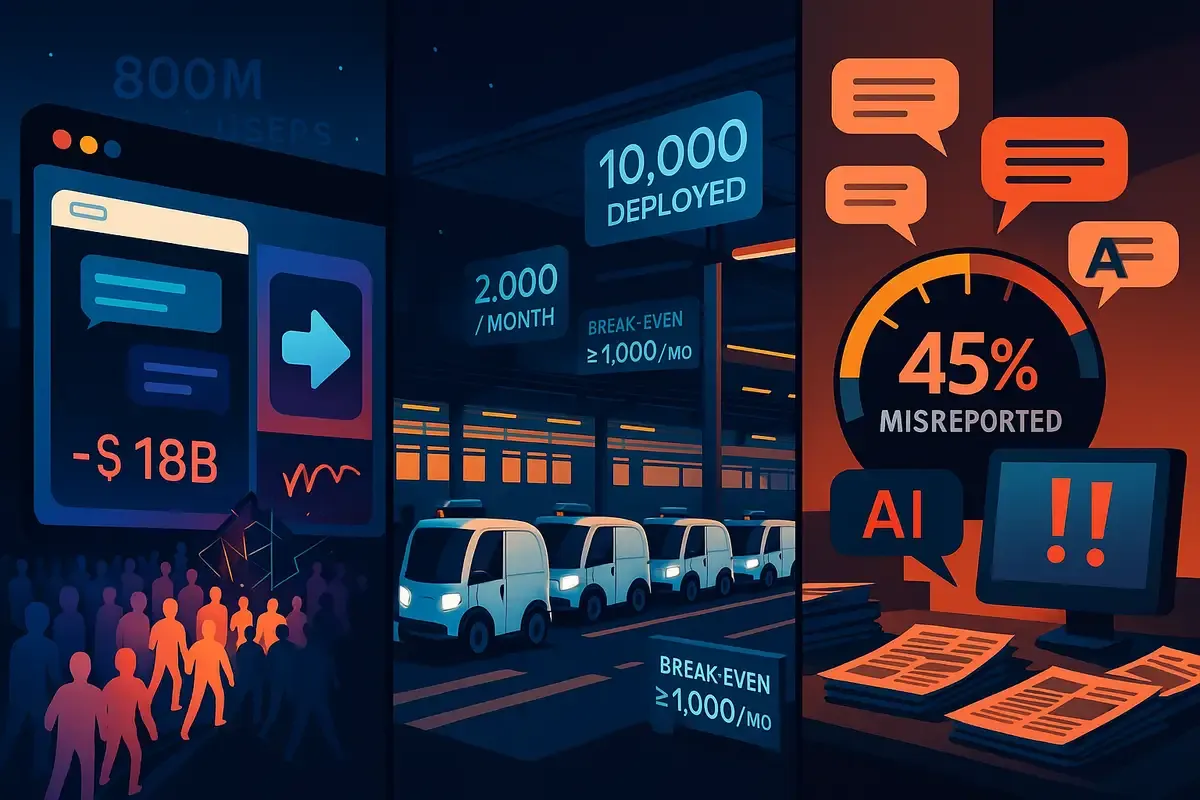Good Morning from San Francisco,
OpenAI launched a browser yesterday. Google's stock dropped $18 billion by Tuesday’s close. The connection isn't subtle—when conversational AI replaces link navigation, a $237 billion advertising model loses its landing zone fast. Eight hundred million ChatGPT users already make distribution instant.
A Chinese company you've never heard of just deployed its 10,000th robovan. They're closing a $500 million round now. They're profitable at 1,000 units sold monthly. Turns out walking-speed delivery boxes beat flashy robotaxis to commercial scale every time.
AI assistants are mangling news stories 45% of the time. Users blame the newsroom and the AI.
Three stories inside.
Stay curious,
Marcus Schuler
OpenAI launches browser
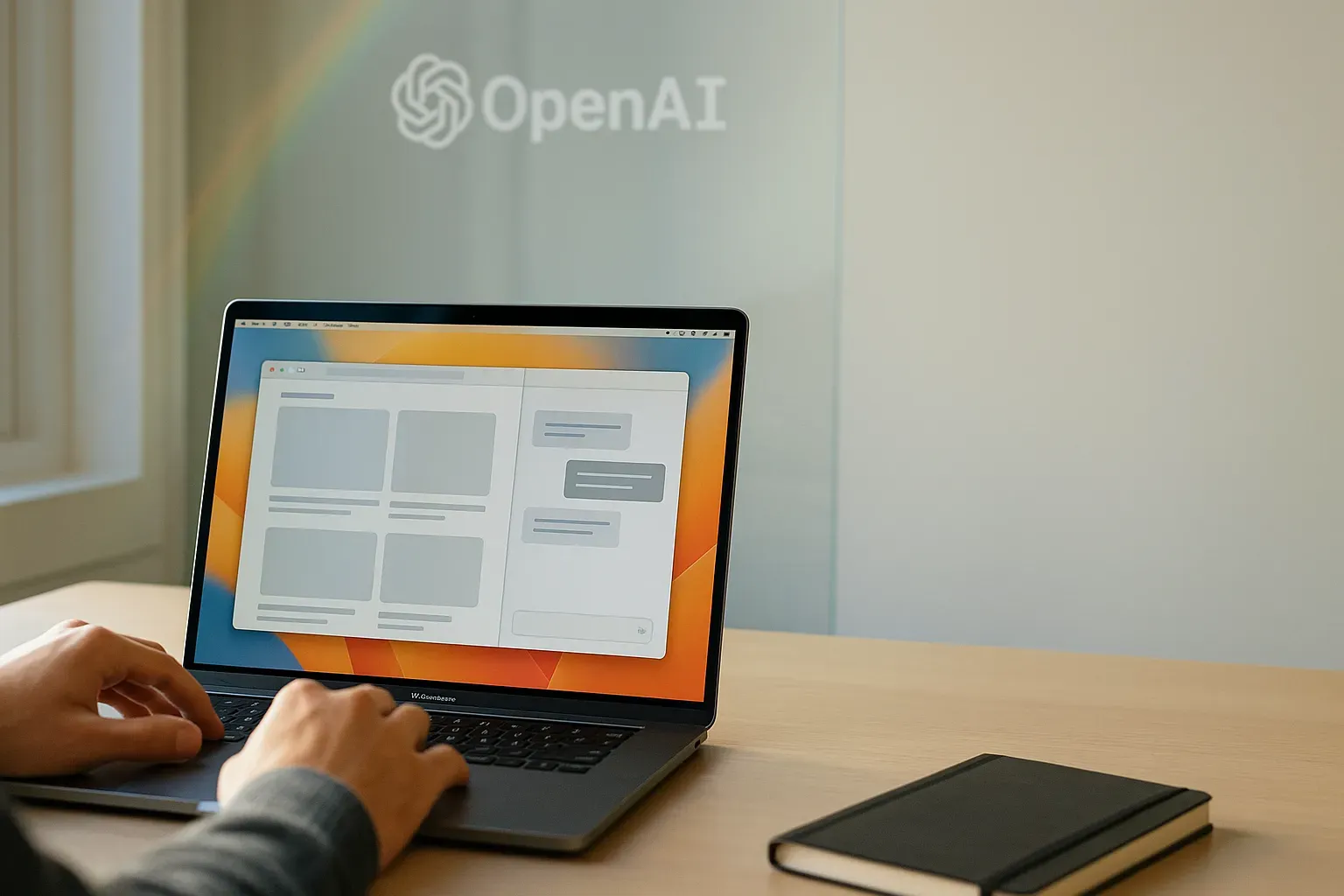
OpenAI launched Atlas browser Tuesday. Alphabet shares fell 3%—$18 billion erased—as analysts modeled what happens when conversational AI replaces link navigation.
The threat isn't technical. Atlas runs on Chromium, same as Chrome. The threat is structural. Atlas puts AI answers first, links optional. Google's $237 billion advertising model—77% of total revenue—depends on users clicking links to reach ads. When synthesis replaces retrieval, those placements have nowhere to land.
Distribution amplifies risk. OpenAI's 800 million weekly ChatGPT users represent ready conversion. Even 5% adoption gives Atlas 40 million users instantly. If 10% of Chrome's 3 billion users shift searches elsewhere, that's $15 billion in revenue exposure before second-order effects compound.
Google can't acquire Atlas. Can't bundle Chrome more aggressively. Can't underprice a free product. Product quality becomes the only competitive lever—exactly where OpenAI currently leads.
Why this matters:
- Search monetization requires reinvention when AI answers eliminate the click
- Google's fortress faces sustained siege for the first time in 15 years
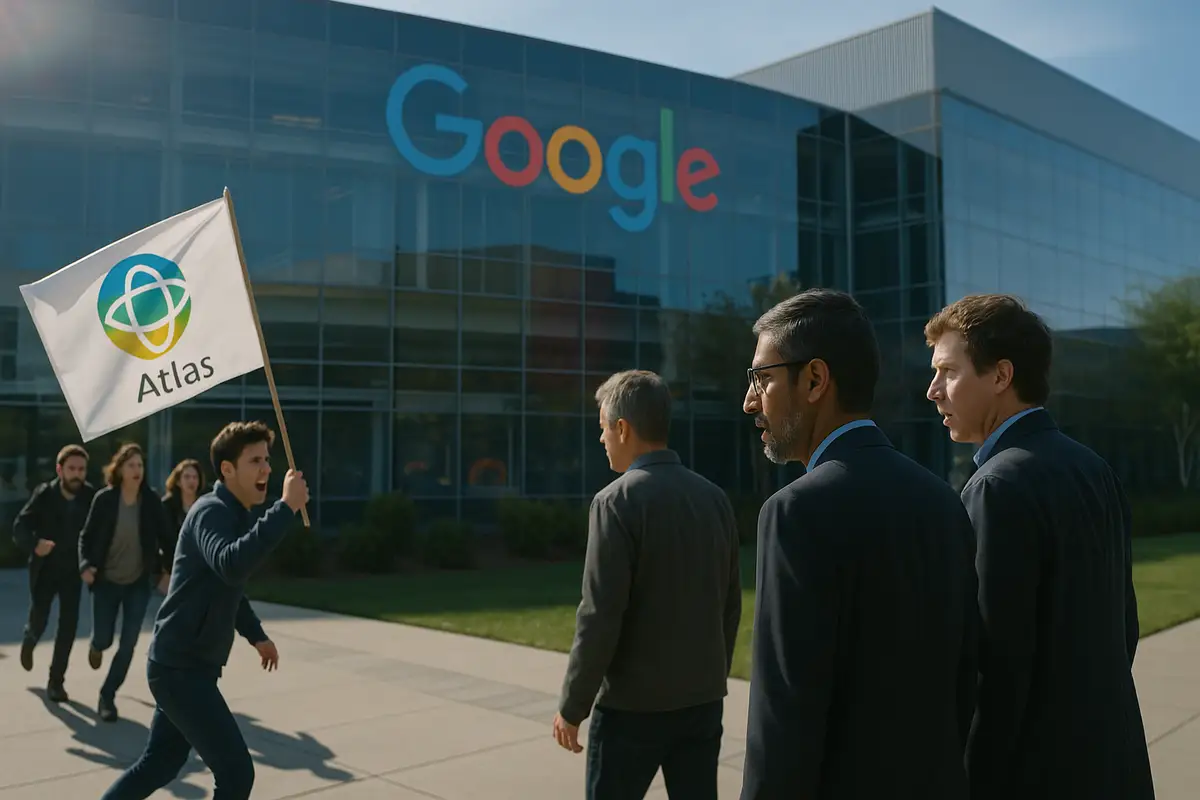
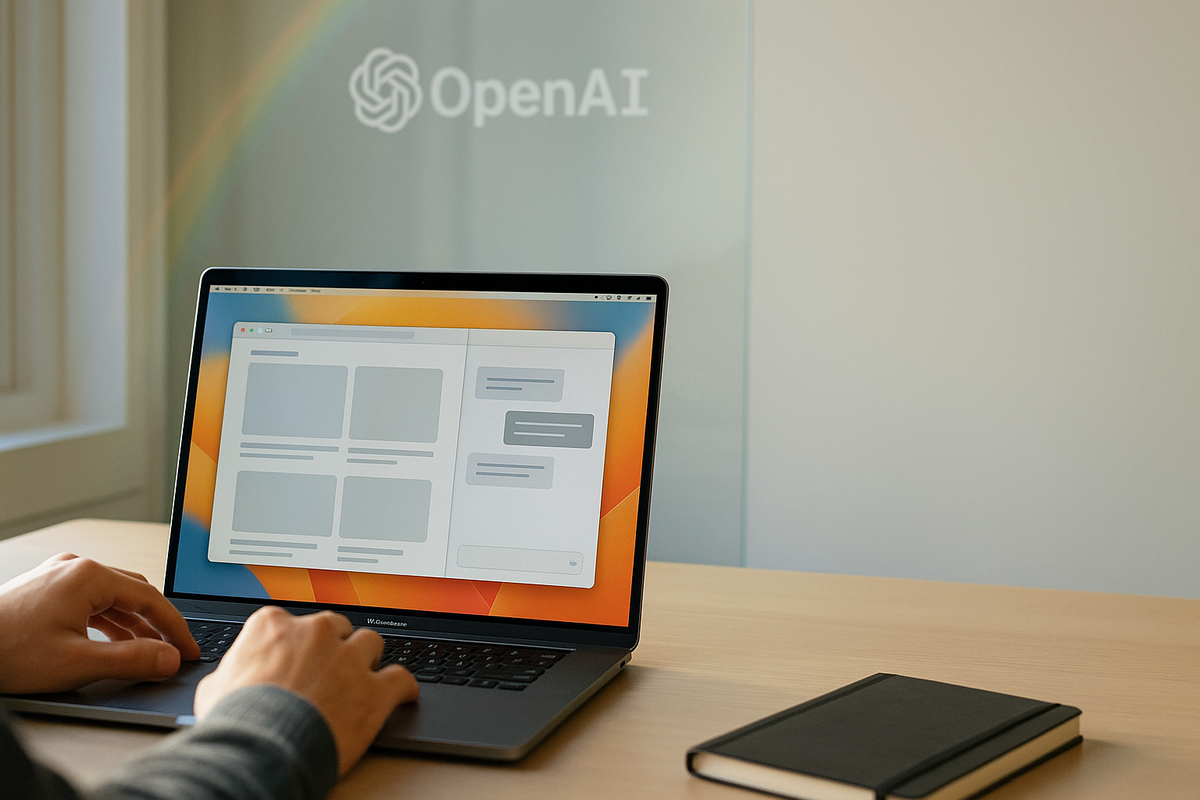
AI Image of the Day

Prompt:
A cute woman with black hair and gray eyes wearing an elaborate white ruff collar, holding and eat a huge bag of "Cheetos" cheese in her hand and one Cheeto stick cheese that holds in its mouth, painted in the style of a old master
Neolix nears $500 million round as robovan math flips
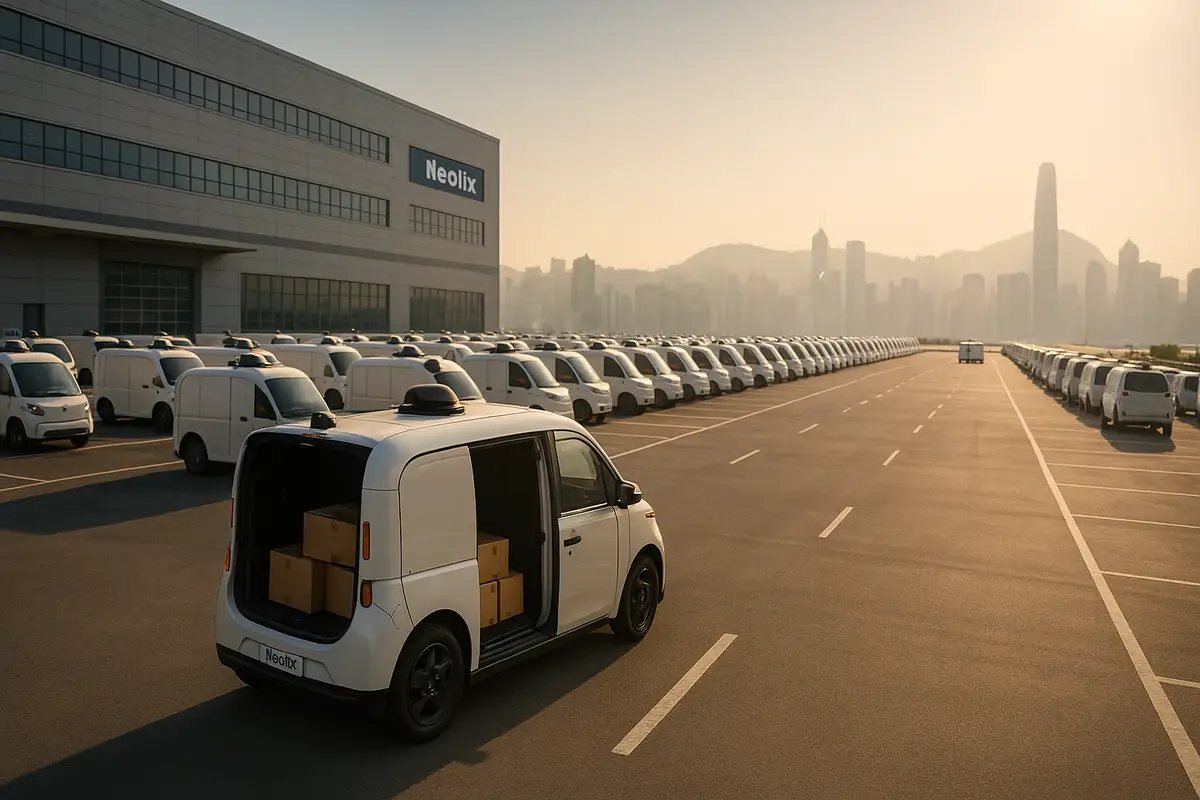
Neolix Technologies is closing a $500 million pre-IPO round after deploying 10,000 robovans—the first autonomous-vehicle maker to hit that mark.
The fresh capital, following a $140 million raise in February, lands as Neolix says it can build roughly 2,000 units monthly and break even at about 1,000 sales. Management expects more than 1,000 overseas orders this year; a Hong Kong listing could follow in early 2026.
Robovans win first because they skip the passenger-trust problem. SF Express already runs about 1,800 units. China Post is a major buyer. The machines haul 500 kilograms at walking speed inside stations and logistics parks—no sorting, no intercoms, just predictable routes where reliability beats speed. On pure hardware, Neolix says robovans cost 20–30% less than equivalent commercial vehicles because there's no passenger cabin or climate stack. Strip the driver, and delivery math tilts hard.
Why this matters:
- Robovans reach commercial scale before robotaxis because they bypass consumer acceptance and let manufacturers strip costs to the metal—proving autonomy economics in semi-structured spaces first.
- China's parcel volume (100+ per person in 2024) and margin compression at carriers create adoption pressure that validates unit economics early, shaping how autonomous delivery rolls out globally.
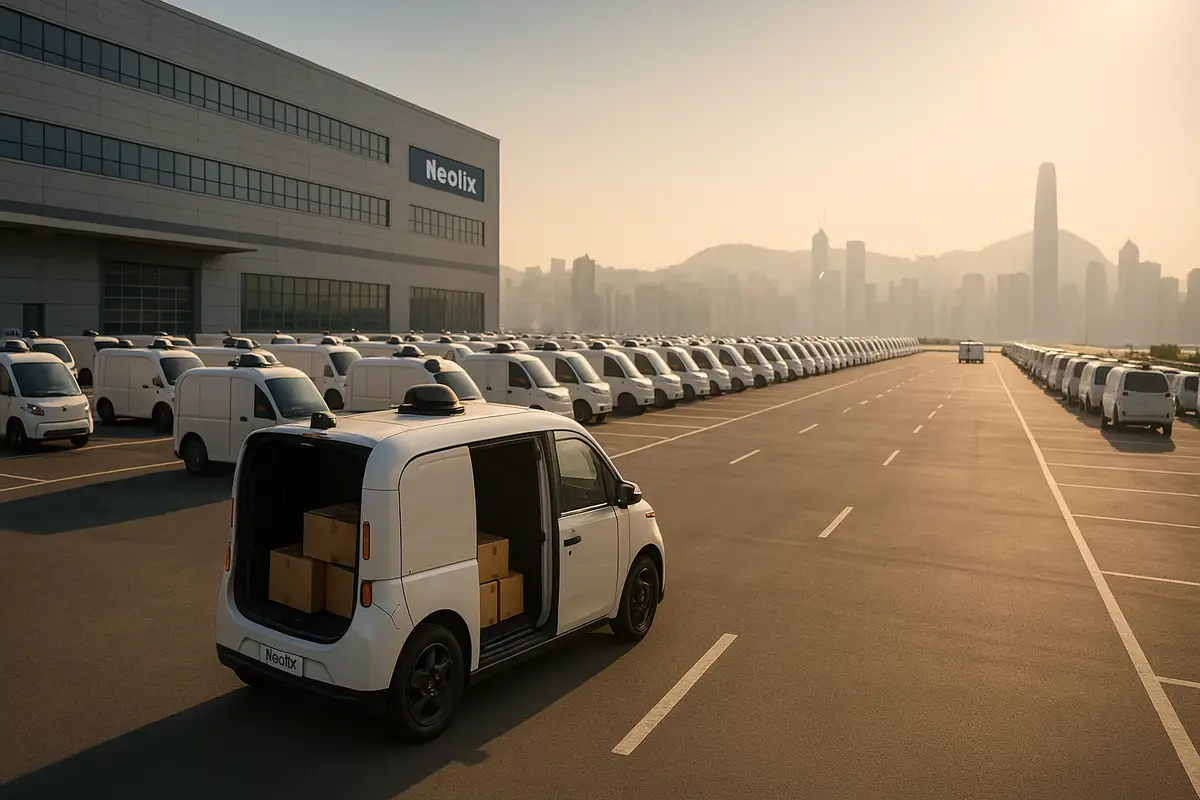
🧰 AI Toolbox
How to Automate Your Sales Outreach with AI Digital Workers
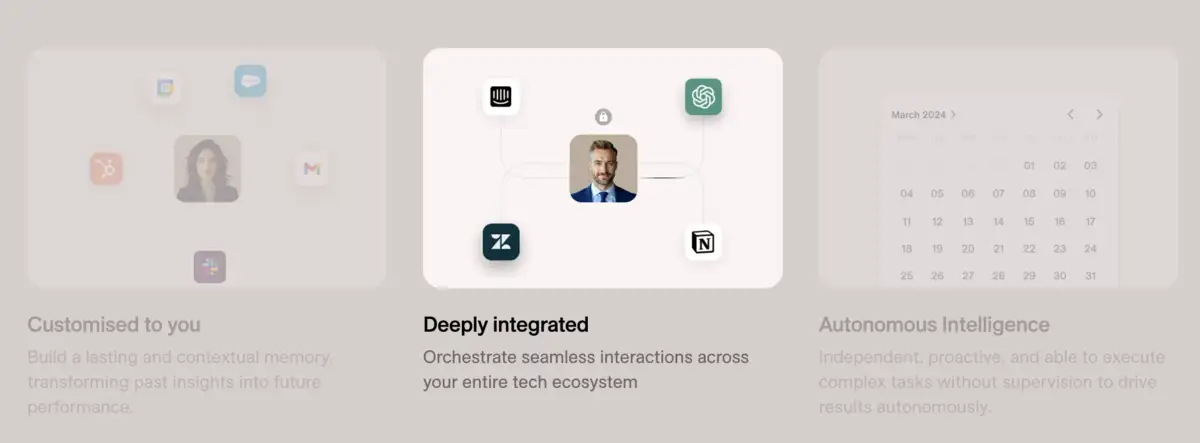
11x creates autonomous AI sales agents that handle lead generation and outreach 24/7. Alice (AI SDR) and Julian (AI Phone Rep) prospect, research, and engage buyers across email, LinkedIn, and phone calls to book qualified meetings for your sales team.
Tutorial:
- Go to the 11x website and book a demo (no free trial available)
- Set up your AI digital workers (Alice for outbound sales, Julian for phone calls)
- The AI identifies ideal prospects by scanning millions of signals across social media and public data
- Alice crafts personalized outreach messages and executes multi-channel campaigns autonomously
- Julian handles inbound and outbound calls with natural conversations in 28 languages
- AI agents qualify leads, handle replies, and schedule meetings directly into your calendar
- Scale your sales pipeline without hiring additional SDRs
URL: https://www.11x.ai/
Better prompting...
Today: Ad Copy Writing
Role
You're a senior digital marketing copywriter. You write short, persuasive ads that get clicks and conversions.
Before you start
Ask me for:
- Target keywords (comma-separated)
- Channels (Search Ads, Meta Ads, LinkedIn, X, etc.)
- For each channel:
– Character limits for headline and body
– Required elements (brand name, offer, CTA) - Tone preference (if any)
When I answer
Create seven ads per channel. Show them in a table:
- Column 1: Headline (within character limit)
- Column 2: Body (within character limit, ends with a CTA)
Pick your top three
For each channel, show your three best ads in a table called "Top 3 Ads."
Below the table, number and explain:
- Why each ad works
- What you'd test or change
Get feedback
Ask: "Want me to improve any of these?"
If yes, ask what to change, update the ads, and ask again.
Keep going until I say no.
Rules
- Stay within all character limits (count spaces)
- Use active voice and specific language
- End every body with a clear CTA
- Work only with the keywords and goals I give you—don't add your own
AI & Tech News
Meta cuts 600 AI roles while poaching from OpenAI
Meta is cutting roughly 600 positions from its superintelligence lab—affecting FAIR research, product AI, and infrastructure units—while simultaneously hiring for its newly formed TBD Lab, which recently nabbed OpenAI research scientist Ananya Kumar, according to Axios. The restructuring signals CEO Mark Zuckerberg's bet that incremental improvements won't close the gap with frontier labs, pushing the company to abandon established research units in favor of a smaller, faster-moving operation backed by its $15 billion Scale AI investment.
AI Data Centers Drive Gas Turbine Shortage as Power Demand Surges
The rapidly growing electricity demand from data centers supporting artificial intelligence operations has created a severe shortage of gas turbines needed for power generation, positioning the United States as the primary market for new gas-fired power plants. This supply crunch in large turbines for gas-powered facilities raises significant concerns about potential environmental and geopolitical impacts as the energy infrastructure struggles to keep pace with AI-driven power requirements.
Apple Shifts Vision Pro Production from China to Vietnam
Apple has moved production of its latest Vision Pro headset featuring the M5 chip to Vietnam, marking a significant shift from its previous manufacturing location in China where the M2-based model launched in 2024 was assembled. This production change represents Apple's continued effort to diversify its supply chain away from China, even as the new headset offers limited new features compared to its predecessor.
Apple Drastically Cuts iPhone Air Production Orders After Poor China Reception
Apple has slashed iPhone Air production orders to nearly "end of production" levels following a lukewarm market reception in China, according to industry sources. Despite the poor performance of the Air model, the tech giant is maintaining its overall iPhone 17 lineup production forecasts at 85-90 million units by boosting orders for other models in the series.
AI Browser Security Vulnerabilities Exposed in Multiple Platforms
Security researchers at Brave have identified widespread vulnerabilities in AI-powered agentic browsers, specifically targeting indirect prompt injection attacks that affect platforms including Perplexity's Comet and Fellou. This research builds upon previous security disclosures and reveals systemic security flaws across the emerging agentic browser landscape that could potentially compromise user interactions with AI-powered web browsing tools.
Jaguar Land Rover Cyberattack Costs UK Economy £1.9 Billion
A cyberattack targeting Jaguar Land Rover has caused at least £1.9 billion in economic damage to the UK and impacted more than 5,000 organizations across the country, according to estimates from the Nonprofit Cyber Monitoring Centre. The incident has been classified as likely "the most economically damaging cyber event" in the UK's history by a cyber classification group.
Baidu Partners with Swiss PostBus to Launch Autonomous Taxi Service
Chinese tech giant Baidu has announced a partnership with Switzerland's PostBus to introduce its Apollo Go autonomous vehicle service to the Swiss market, with initial testing scheduled to begin in December 2025. The collaboration aims to launch commercial robotaxi operations by the first quarter of 2027, marking Baidu's expansion of its self-driving technology into the European market through Switzerland's established public transportation network.
Chinese Chipmaker YMTC Eyes Massive $40B IPO by 2026
Yangtze Memory Technologies Co. (YMTC), a major Chinese semiconductor manufacturer, is reportedly considering an initial public offering on the mainland Chinese stock market with a valuation that could reach $40 billion as early as 2026. If executed, this IPO would rank among China's largest public offerings in recent years, highlighting the country's push to strengthen its domestic semiconductor industry amid ongoing global chip competition.
AI Security Startup Keycard Raises $38M in Total Funding
Keycard Labs Inc., a startup specializing in managing AI agent access to enterprise internal systems, has launched with $38 million in total funding, including a $30 million Series A round led by Acrew Capital and an $8 million seed round previously led by Andreessen Horowitz (a16z) and boldstart ventures. The company addresses the growing need for enterprises to securely control how artificial intelligence agents interact with and access their internal systems and data.
AI assistants fail news accuracy tests

AI assistants misreport news in 45% of cases, according to a BBC-coordinated study released Wednesday.
Google's Gemini showed sourcing problems in 72% of responses—more than double competitors. The audit examined 3,000+ answers from ChatGPT, Copilot, Gemini, and Perplexity across 18 countries and 14 languages, with journalists from 22 public media organizations evaluating accuracy, attribution, and context.
The bind cuts both ways. When AI scrambles a news summary, users don't just distrust the assistant—they distrust the outlet it cited. The newsroom did the reporting correctly. The AI mangled it. The brand takes the hit anyway.
That's perverse at scale. Seven percent of online news consumers already use AI assistants for news; for under-25s, it's 15%. Adoption is outpacing reliability, and newsrooms can't monitor or correct every AI-generated summary in the wild. Trust erodes in both directions.
Why this matters:
- News brands face reputational liability for AI-generated errors they can't control or fix.
- Millions consume news through assistants; unresolved accuracy gaps compound trust loss across journalism.

🚀 AI Profiles: The Companies Defining Tomorrow
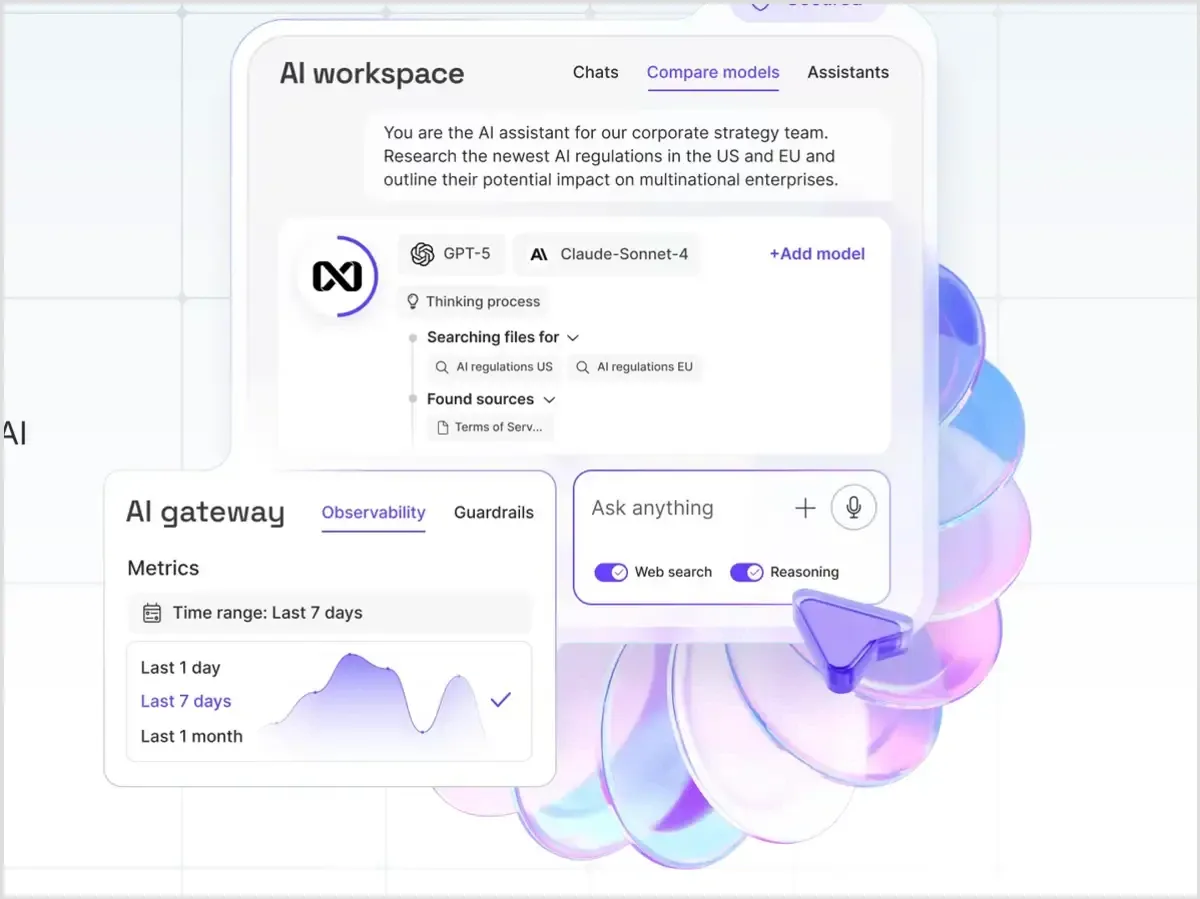
Nexos.ai: Vilnius Builds the Enterprise AI Traffic Cop
Two Nord Security veterans watched companies rack up six-figure AI bills without visibility or control. They built a gateway to fix it.
👥 The Founders
Tomas Okmanas and Eimantas Sabaliauskas launched Nexos.ai in late 2024 from Vilnius, Lithuania. Both helped build Nord Security (the NordVPN parent) into a multi-billion-dollar company before tackling enterprise AI chaos. They spotted the problem advising Tesonet portfolio companies—Hostinger burned serious cash calling model APIs directly with zero oversight. The team's still small but growing fast. 🇱🇹
🛠️ The Product
Nexos.ai drops a control plane between your apps and every major AI model. Two pieces: a secure Workspace where employees chat with approved models, and a Gateway that routes developer traffic to 100+ models from OpenAI, Anthropic, Google, Meta, Mistral, Groq, plus private deployments.
Core strength? You integrate once, then switch models based on price, speed, or accuracy. Automatic failover when providers crash. Caching cuts repeat-prompt costs. Guardrails block sensitive data leaks. Budget controls prevent bill shock. Full audit trails show who prompted what, when. RAG connects company docs so answers stay grounded.
🥊 The Competition
Cloud giants (AWS Bedrock, Azure AI Foundry, Vertex AI) bundle governance but lock you into their ecosystems. Dedicated gateways like Portkey AI and OpenRouter offer routing and aggregation. LLMOps tools (Vellum, Langfuse) handle observability separately. Nexos bets enterprises want neutral, multi-cloud control with security baked in—not bolted on.
💰 Financing
$8M seed (Index Ventures, January 2025), then €30M Series A (~$35M) led by Evantic Capital and Index. Post-money valuation: €300M (~$350M). Angels include CEOs from Datadog, Klarna, Supercell, Wix.
🔮 The Future ⭐⭐⭐⭐
Nexos sits where boards ask "Can we use AI safely?" and CFOs ask "Why's the bill exploding?" If cloud vendors don't crush neutral players, there's real oxygen here. Risk: platform gravity pulls buyers toward good-enough governance bundled with existing contracts.
Solid bet if they execute. 🚦



